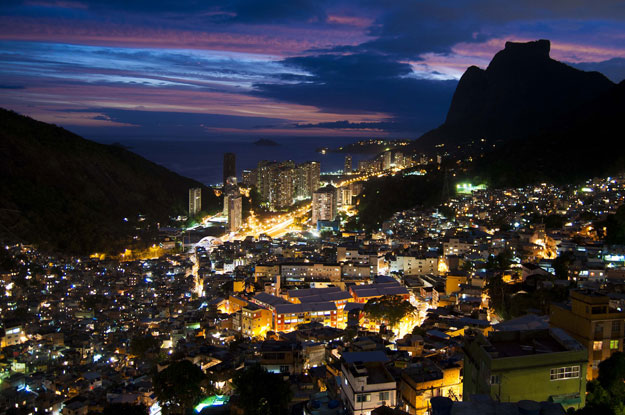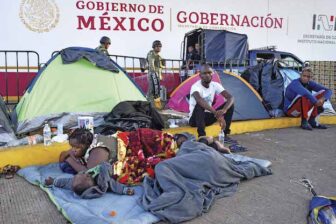Editor’s Note: A version of this piece first appeared in Portuguese in Agência Pública, and can be seen here. The English translation has been lightly edited for clarity, context and length.
As Rio de Janeiro prepares to receive hundreds of thousands of tourists and athletes from over 200 countries for the Olympic Games, health authorities are working overtime to combat the spread of the Zika virus. But beyond Zika, the city hides shockingly high rates of tuberculosis, especially in its favelas.
The infectious lung disease, not common in Europe since the 18th and 19th centuries, killed a total of 840 people in Rio de Janeiro state in 2014, including 440 in the city itself.
That’s the highest number in any of the country’s 27 state capital cities, amounting to 6.9 deaths per 100,000 people in 2014.
Tuberculosis cases are decreasing in Brazil generally, but they remain high in Rio, thought to be a result of the city’s densely populated favelas and large street and prison populations, which may suffer the highest rates of the disease, though precise data is difficult to collect.
Treatment in Rio is free, but the crumbling state healthcare system is often unable to take on the large number of cases. There were a total of 14,000 in Rio state last year, according to Dr. Ana Bevilaqua, from the state health department’s dedicated tuberculosis fighting unit.
The city’s resources are stretched too thin, said Brazil’s leading tuberculosis expert, Dr. Margareth Dalcolmo of the Oswaldo Cruz Foundation. “Diagnoses can be made in 24 hours … but there are now too few beds for those that need to leave their homes, with the deterioration of the public health network,” Dalcolmo said.
As Brazil endures its worst recession in recent memory, many public services face drastic cuts and shortages, including healthcare.
Rio’s tuberculosis problem is particularly grave in the city’s favelas, where, according to a 2011 study from Johns Hopkins University in the U.S. and Rio de Janeiro’s Federal University (UFRJ), the incidence of the disease could be up to four times higher than the city average. That study found that there were 300 cases of tuberculosis for every 100,000 favela inhabitants, “the same kind of figures as Sub-Saharan Africa,” according to Jorge Pio, a manager for lung diseases at Rio’s Municipal Health Department.
Cramped living conditions, often lacking adequate ventilation and quality sanitation, particularly assist the disease’s spread in favelas.
There is an average of five thousand inhabitants per square kilometer in Rio de Janeiro, but in Rocinha, one of Rio’s – and Latin America’s – largest favelas, the figure reaches roughly 45 thousand. Several people often live in the same tiny room, passing the infection when they cough.
An ambitious urbanization plan, called Morar Carioca, was launched in 2011 in Rio to improve living conditions in favelas – but the initiative stalled.
Pedro da Luz Moreira, president of the Institute of Architects of Brazil (IAB), said it was difficult not to relate this to the race to get everything ready for the Olympics.
“In my understanding, the favelas have been put to the side,” he said. After initial moves to urbanize all of Rio’s 783 favelas by 2020, which would have included road surfacing, improved drainage and sanitation, lighting, and the creation of green and recreation spaces, the plan was drastically reduced, and Moreira’s group left the project altogether in 2013.
Another reason tuberculosis spreads in favelas is that people are ashamed of admitting they have what is seen as a “poor disease” and may not seek treatment in time to stop it spreading further.
Sonia da Silva, a resident of Rio’s Urubu favela and a community health adviser, said many favela residents even find it easier to admit they have AIDS than tuberculosis.
“When they have a case of tuberculosis, the residents keep quiet. Do you know why? Because if you’ve got tuberculosis, you’re poor, you live badly, you eat badly. It’s a lot of stigma for people to bear. When a resident gets this diagnosis, which may already be late stage, his self-esteem is already on the floor,” da Silva said.
“It is easier to say you are carrying AIDS, you know why? Because if you’ve got AIDS, you are a player. If you have tuberculosis, you are just poor.”
Rio’s Municipal Health Department declined to disclose figures of how many of the city’s favela residents specifically have tuberculosis – a decision made in order “to avoid generating panic,” according to Pio. A department spokesperson said that they did not want to further add to the existing stigma faced by favela residents. The spokesperson did, however, highlight that the figure for tuberculosis cases in the municipal area – 7,149 cases in 2014 – had remained “stable” since 2011, a promising sign, at least for now, that the disease is not spreading, a scenario that could become more difficult to maintain with an economy increasingly in crisis.
—
Vigna is a journalist for Agência Pública based in Rio de Janeiro.








